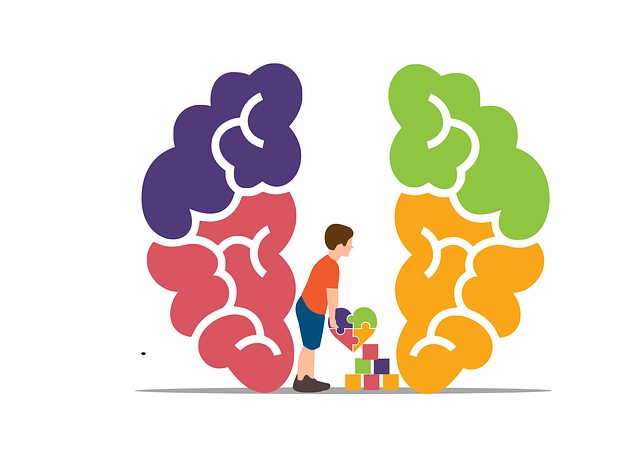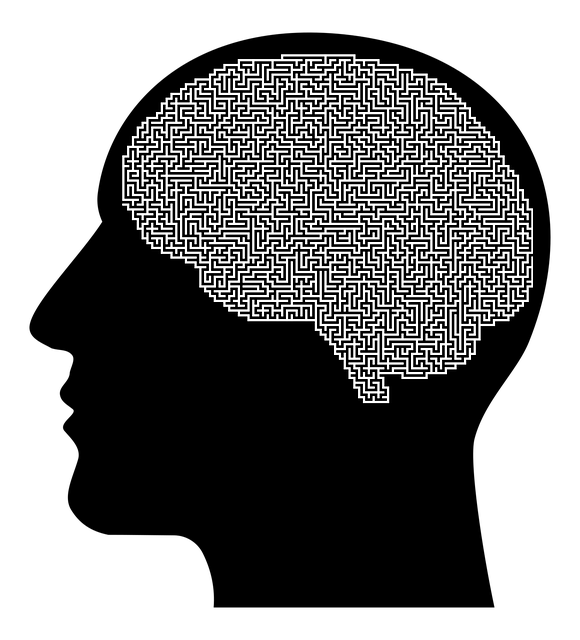Colorado Springs faces a unique mental health challenge due to an increasing number of blended families, resulting from divorce and remarriage. To address this, specialized strategies like conflict resolution techniques and tailored therapy sessions are employed through programs like Colorado Springs Blended Families Therapy. This holistic approach combines online and in-person sessions, stress management tools, and evidence-based practices such as Compassion Cultivation Techniques to enhance accessibility and improve mental health outcomes. Continuous improvement is measured through feedback and data analysis, ensuring the program remains relevant and effective in catering to the diverse needs of blended families in Colorado Springs.
In Colorado Springs, addressing mental health within blended families is crucial due to unique challenges that emerge from diverse family structures. This article explores effective program design for enhancing mental well-being in these households through a holistic approach. We delve into identifying key issues, structuring engaging therapy sessions combining online and in-person methods, employing evidence-based techniques, and measuring program success. By integrating these strategies, Colorado Springs can enhance mental health support tailored to the complex dynamics of blended families.
- Understanding Mental Health Within Blended Families: A Colorado Springs Perspective
- Identifying Key Issues and Challenges in Blended Family Dynamics
- Program Structure: Integrating Online and In-Person Therapy for Optimal Engagement
- Evidence-Based Techniques and Strategies for Mental Health Education
- Measuring Success: Assessment, Feedback, and Continuous Improvement in the Program Design
Understanding Mental Health Within Blended Families: A Colorado Springs Perspective

In Colorado Springs, understanding mental health within blended families is a growing focus due to the increasing number of households adopting this structure. Blended families, often formed through divorce and subsequent remarriage, bring together children from previous relationships, creating unique dynamics that can impact overall mental well-being. This diverse family unit requires tailored approaches in mental health education programs design. The challenge lies in addressing the specific needs of each individual while fostering healthy relationships and effective communication within the family.
Mental health professionals in Colorado Springs are leveraging various strategies, including conflict resolution techniques, to help blended families navigate challenges. By incorporating these skills into Healthcare Provider Cultural Competency Training, therapists enable families to manage stress, resolve conflicts peacefully, and promote a supportive environment. Well-designed Mental Health Education Programs not only teach coping mechanisms but also enhance cultural understanding, ensuring that every member of the family feels valued and respected despite their different backgrounds. This holistic approach is pivotal in strengthening blended families’ resilience and overall mental health.
Identifying Key Issues and Challenges in Blended Family Dynamics

Blended family dynamics in Colorado Springs present unique challenges that require tailored mental health education and support. These families often navigate complex emotional landscapes, with stepparents, children from previous relationships, and biological parents living under one roof. Issues such as adjustment difficulties, stepped-parenting roles, and sibling rivalries are prevalent, demanding comprehensive strategies to foster harmony.
Therapy for these households can involve specialized sessions that accommodate individual needs while promoting family bonding. The Mental Wellness Podcast Series Production, for instance, offers a creative outlet for sharing stories and insights related to blended families. Social Skills Training equips both parents and children with effective communication tools, while Emotional Well-being Promotion Techniques help everyone manage stress and strengthen their emotional connections within the family unit.
Program Structure: Integrating Online and In-Person Therapy for Optimal Engagement

In today’s digital age, a well-structured mental health education program should seamlessly integrate online and in-person therapy sessions to maximize engagement and accessibility for diverse learners. Colorado Springs Blended Families Therapy offers a prime example of this innovative approach, combining virtual counseling with face-to-face interactions. This blend allows for flexible learning opportunities, catering to working professionals, busy parents, and individuals with unique schedules. Online platforms provide the comfort and convenience of one’s home, enabling participants to access resources and engage in therapeutic exercises at their own pace. Meanwhile, in-person sessions facilitate deeper connections, crucial for building trust and fostering open communication—essential components of effective therapy.
The program’s design emphasizes a holistic approach to mental well-being, incorporating various techniques such as conflict resolution skills, positive thinking strategies, and stress reduction methods. By merging digital tools with traditional counseling, the initiative ensures a comprehensive learning experience tailored to individual needs. This blended model not only enhances accessibility but also encourages consistent participation, ultimately leading to more significant improvements in mental health outcomes for families in Colorado Springs and beyond.
Evidence-Based Techniques and Strategies for Mental Health Education

Integrating evidence-based techniques is paramount when designing mental health education programs, especially in diverse settings like Colorado Springs Blended Families Therapy. Compassion Cultivation Practices have proven effective in fostering empathy and reducing stress among individuals and professionals alike. By incorporating mindfulness exercises, practitioners can enhance their ability to connect with clients, creating a safe space for open communication. This approach not only benefits the therapy process but also serves as a powerful Burnout Prevention Strategy for Healthcare Providers, who often face high-stress environments.
Risk Assessment for Mental Health Professionals is another critical aspect. Programs should equip therapists with tools to recognize early warning signs of burnout and mental health challenges within themselves and their peers. This proactive approach ensures that professionals remain resilient and equipped to support clients effectively. Effective education goes beyond theory; it empowers practitioners with practical strategies to navigate complex emotional landscapes, ultimately improving client outcomes.
Measuring Success: Assessment, Feedback, and Continuous Improvement in the Program Design

Measuring success is a pivotal aspect of any effective mental health education program, especially when catering to diverse audiences like blended families in Colorado Springs. Assessment strategies should be multifaceted, employing both quantitative and qualitative methods to gauge the program’s impact. This could involve pre-and post-program surveys to track participant well-being, attendance rates, and engagement with provided resources. Additionally, qualitative feedback through focus groups or individual interviews can offer deeper insights into participants’ experiences, identifying areas of improvement and highlighting the most impactful aspects of the program.
Continuous improvement is key to refining the program design. Using assessment data, therapists and educators can adapt teaching methods, enhance communication strategies, and integrate new empathy-building techniques. For instance, if feedback reveals a need for better parent-child communication strategies, the program can incorporate workshops focused on this area, drawing from the latest research in Mental Health Policy Analysis and Advocacy to ensure culturally sensitive and inclusive practices. Regular reviews and iterative updates ensure that the program remains relevant, effective, and aligned with the evolving needs of blended families seeking support in Colorado Springs.
Mental health education programs designed for blended families in Colorado Springs must integrate online and in-person therapy for optimal engagement. By addressing key issues, employing evidence-based techniques, and continuously measuring success through assessment and feedback, these programs can significantly enhance the mental well-being of blended family dynamics. For effective long-term impacts, therapists and educators should prioritize a multifaceted approach that caters to the unique needs of families in this diverse community.











